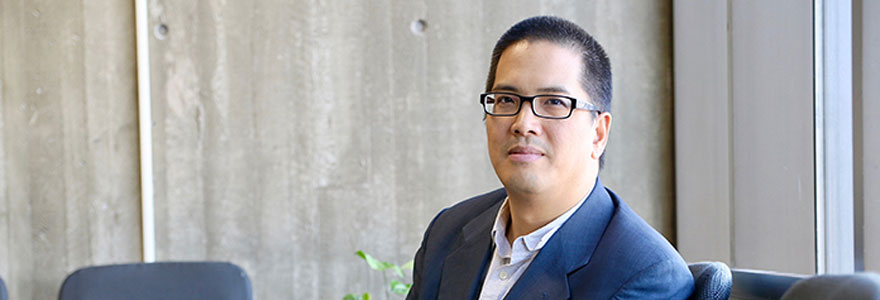News and Updates
Contact
Faculty of Social Science
Social Science Centre
Room 9438
Western University
T. 519-661-2053
F. 519-661-3868
E. social-science@uwo.ca
Attack ads become a double negative
March 02, 2018
Photo and story by Paul Mayne
With a provincial election just months away, expect the gloves to come off and the rhetoric to ramp up. But negative campaigning – candidates trying to improve their odds with ads slamming their opponents – may not be the best way to win an Ontario election, according to one Western professor.
“We’re maybe not as negative as The States, but we do have negative ads, as well,” said Political Science Associate Professor Chris Alcantara.
In 1993, for example, the federal Progressive Conservatives produced an attack ad that focused on Liberal leader Jean Chrétien. The ad, sometimes referred to as the ‘face ad,’ was perceived by many to mock Chrétien’s facial droop caused by Bell’s palsy. “Jean Chretien – a prime minister? Think twice,” it said.
“They showed close shots of his face, so they were focusing on that and asking did you want this guy as a leader, because he doesn’t look like one,” said Alcantara. “People will attack others’ character, or their qualifications, or focus on their scandals. But are they successful? That’s the question.”
Alcantara and Laurier University Political Science professor Jason Roy tested the theory behind negative ads and found they do have negative consequences – for the attacker candidate.
“We did one experiment without party labels and one with real party labels and found they are effective in increasing attention but, actually, negative ads are not effective (for votes),” said Alcantara. “If I run a negative ad about you, people will want to read more about you, but in terms of voting probability, it actually reduces it. When I attack, people are less likely to vote for me. The best thing to do is go positive.”
Yet political strategists, of all stripes, can’t seem to fight the impulse to turn to the dark side.
“Party strategists can’t sort out the effects. They can’t sort out what negative ads are doing, versus what the economy is doing, versus what their campaign is all about,” said Alcantara. “All these multiple things affect the way we vote and all they have is instinct to go on. That’s good in some senses, but it doesn’t actually translate to votes. What we found the most effective was if you went positive, and the other parties went negative, that had the greatest effect on vote choice.”
Instead of slamming an opponent, candidates may be better off to focus on their own qualifications or send a positive message, such as Justin Trudeau’s successful ‘sunny ways’ approach to the 2015 federal election, he added.
“Old habits die hard. Some people are skeptical of academic results, so people just think they know better and run on instinct,” said Alcantara, comparing it to the sports world’s long-time resistance to analytics.
“But that changed, teams started using statistics, and it succeeded. The same way, when people start using this research and it succeeds, it will come. It’s going to take a few elections. It will take some others and perhaps the pendulum will change.”
One instinct, however, the parties seem to have right, said Alcantara, is in bringing star candidates to win particular ridings. The federal Liberals, for example, recruited astronaut Marc Garneau for the 2006 federal election. He is now Minister of Transport. They convinced journalist Chrystia Freeland to run in 2013 in Toronto Centre. She is now Minister of Foreign Affairs.
“Does it make sense for parties to poach celebrities? What we found was yes, star candidates gave a 10-per-cent boost for people’s vote probability for that party, on name alone,” particularly if the voter isn’t completely committed to a party, said Alcantara.
“For those people who say they are sort-of Liberal, or sort-of identify as Conservative, if you get a star candidate in their riding, that will push them,” he said. “We found that star candidates matter and parties should spend resources on that, but (only) in ridings where there are a lot of leaners. You have to make sure they go together.”
Endorsements also have an impact on voting behaviour, the researchers found. If an individual, organization or media outlet offers an endorsement, it can cause a 14-point swing for that party.
“It’s much bigger in the U.S., but in Canada you see it too, they (endorsements) do have an effect,” he said. “We’re different because we have flexible partisans. We are much more willing to change.”
Alcantara said he will be eagerly watching the lead-up to the provincial election in June.
The Ontario Conservatives’ leadership turmoil makes it all the more interesting, he said. The party will be announcing a new leader on March 10, following the resignation of Patrick Brown last month after allegations of sexual misconduct. After re-entering the race days later, Brown has since quit the race again, to focus on clearing his name. In the race now are Caroline Mulroney, Christine Elliott, Doug Ford and Tanya Granic Allen.

